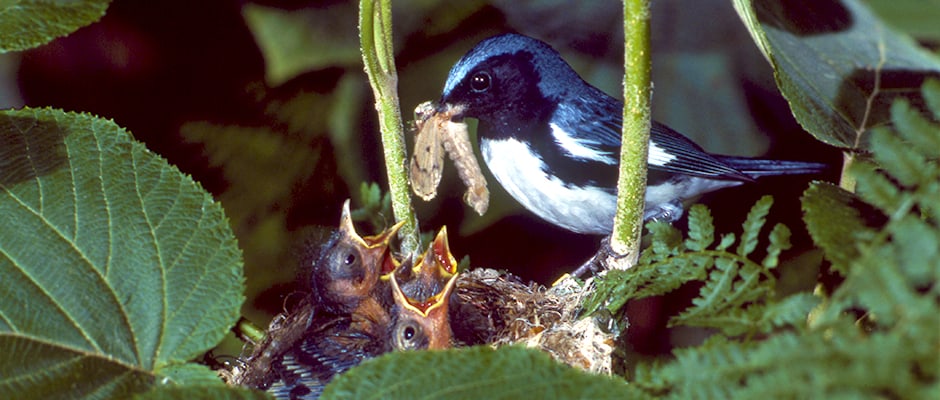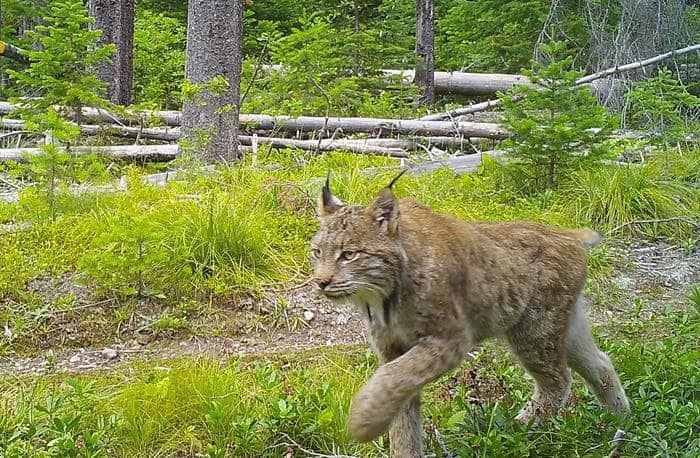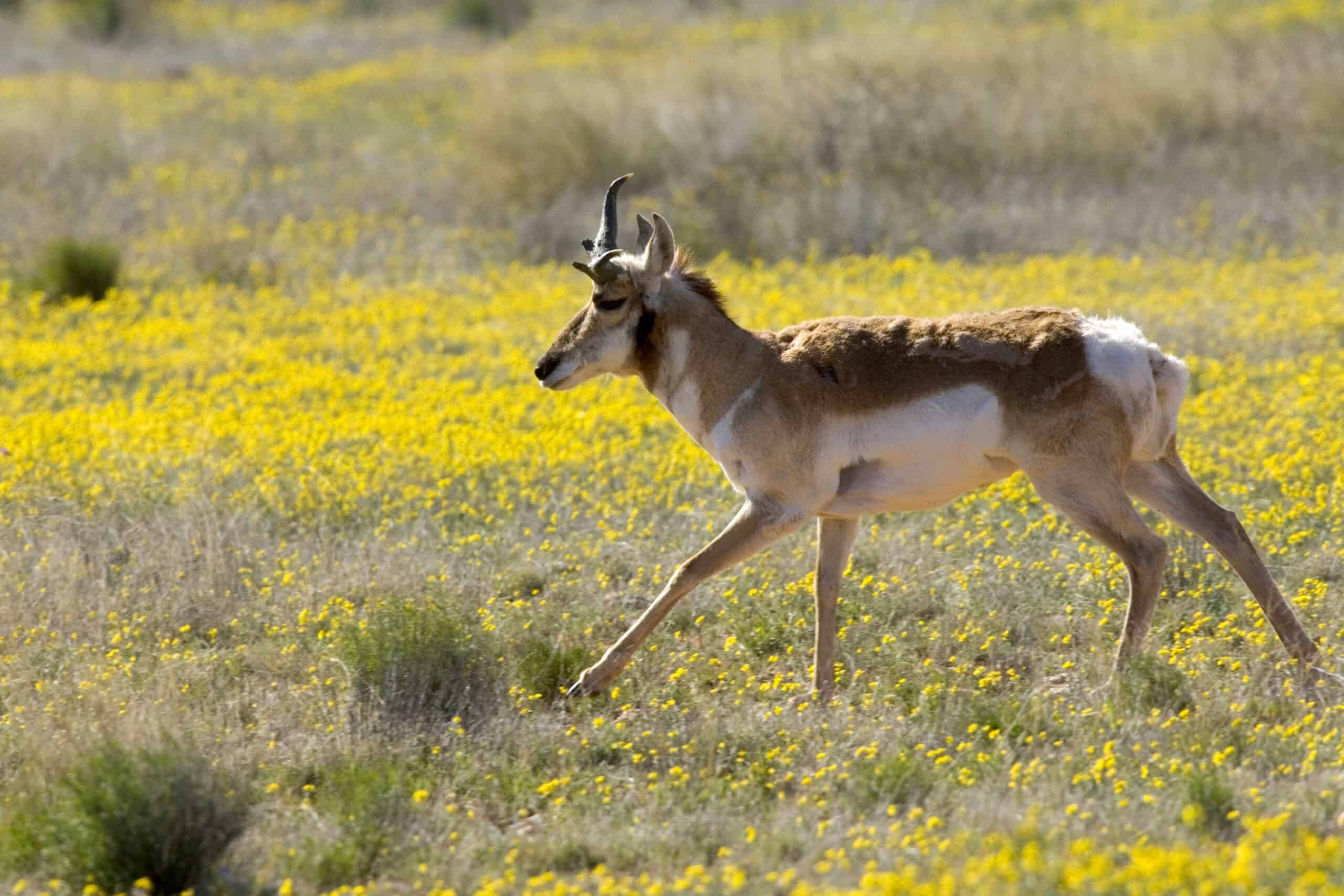Share this article
Warbler Species Adjusts to Early Springs
Many wildlife species are feeling the impact of climate change, but one bird species seems to be having somewhat of an easier time adjusting.
In a recent study published in the journal Oikos, researchers found that black-throated blue warblers (Setophaga caerulescens) are able to adjust the time that they breed based on when spring leaf expansion occurs.
For example, when spring came 10 days earlier than expected, the birds initiated their clutches five or six says earlier, according to lead author of the study Nina Lany, who completed the study as part of her PhD dissertation at Dartmouth College. “They didn’t match leaf expansion exactly, but they adjusted the timing of breeding by an appropriate amount,” she said. However, Lany added that this flexibility could have limits as a warming climate continues because the date these migratory warblers arrive on the breeding grounds is relatively inflexible.
As part of their study, the researchers used 25 years of demographic measurements of the birds in the Hubbard Brook Experimental Forest in New Hampshire and compared their breeding time with the presence of caterpillar prey and the plants that caterpillars feed on. They found that there was no consistently timed food peak in the forest, perhaps because a diversity of caterpillar species feed at different times throughout the birds’ breeding season. “There was really no way for the birds to time breeding so peak food demand for their nestlings coincided with peak food availability,” she said. “It wasn’t predictable.”
But the researchers observed that the timing of the warblers’ first clutches had a strong link to spring leaf expansion. This might be due to visual cues or a physiological sensitivity to changes in temperatures, but Lany said they’re not entirely sure how the birds are able to exhibit this breeding flexibility.
Lany added that the length of the interval between when the birds arrive and initiate their first clutches is short in early springs. “With continued warming, birds wouldn’t arrive in time for breeding at the appropriate time. From a conservation point of view, this is an important take home message,” she said.
Header Image: A male black-throated blue feeding nestlings. Image Credit: NL Rodenhouse








